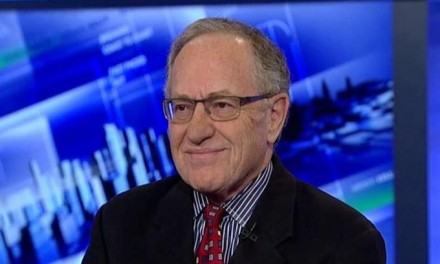Washington, D.C.’s congressional delegate, Eleanor Holmes Norton, is perturbed by what she claims is a lack of interest in, and insufficient prosecutions of, so-called “hate crimes” on the part of the U.S. attorney for the District of Columbia.
The U.S. attorney’s office handles most criminal cases in the city, so Ms. Norton has twice this summer written to Jessie Liu, the U.S. attorney for the District, demanding an explanation for Ms. Liu’s purported legal lethargy.
Ms. Norton is particularly annoyed at what she says is the alleged failure of Ms. Liu’s office to address a spate of attacks on members of the LGBTQ community in the city.
Ms. Liu — an appointee of President Trump, who heads the largest U.S. attorney’s office in the country, with more than 300 prosecutors — disputes Ms. Norton’s assertion.
Ms. Liu has said her office provides every case where it might apply “with a hate-crimes enhancement with the careful attention and commitment it deserves.” She also said she has added a second hate-crimes coordinator to ensure such cases are prosecuted.
But Ms. Norton is asking the wrong question, and Ms. Liu is providing the wrong answer.
The question no one is asking or answering — but should be — is: Why are there federal and state hate-crimes laws on the books at all? To the contrary, they should be abolished altogether.
D.C.’s Bias-Related Crime Act allows prosecutors to seek, and judges to hand down, sentences significantly greater (up to 50 percent greater) than would otherwise be the case if it is somehow determined that the crime was committed based on the victim’s age, sex, race, religion, ethnicity, disability, sexual orientation or gender identity, and other distinguishing characteristics.
The array of victim classes receiving special protection vary in the 45 states that have hate-crimes laws on their books, as does the extent of sentence enhancement.
But that raises a pointed question: Why should special classes of victims of crime get preferential treatment? That is to say, how exactly is an assault on, or the killing of a woman, a black person, a homosexual, a Muslim, or a transgender person more heinous than the very same crime committed against a man, a Caucasian, or someone who’s straight?
The simple answer is: It isn’t — or at least it shouldn’t be — because hate-crimes laws are, in a word, Orwellian.
In George Orwell’s dystopian 1945 allegorical novel “Animal Farm,” where pigs controlled the government, all animals were declared equal, but some animals — not surprisingly, the pigs — were “more equal than others.”
The flip side of asking why some crime victims are “more equal than others” is this: Why should a perpetrator who assaults or kills a gay black man or an Asian woman be punished more severely — and spend a single additional day in jail or prison — than if he or she had committed the exact same crime against, say, a straight, white male?
As prescient as he was, Orwell couldn’t possibly have foreseen today’s political correctness, but he had it right. Hate-crime statutes turn the concept of equal justice under the law on its head by making some Americans more equal than others.
Every criminal perpetrator should be prosecuted to the full extent of the law — regardless of the victim’s skin color, ethnicity, sexual orientation, or any other such characteristic.
That’s why Ms. Liu shouldn’t bow to Ms. Norton’s demands.
Even without hate-crime enhancements, D.C. laws against assault and homicide are presumably sufficient for bringing justice to the victims of the 59 instances last year in which D.C. police made arrests in so-called hate-crime cases.
On Oct. 28, it will be 10 years since then-President Obama signed the federal Matthew Shepard and James Byrd Jr. Hate Crimes Prevention Act into law. It expanded an existing U.S. federal hate-crime law to apply to crimes motivated by a victim’s actual or perceived gender, sexual orientation, gender identity or disability.
To the extent that they render some victims more equal than others before the law, that law and all the state hate-crimes statutes are prima facie unconstitutional.
Despite that, no one convicted under hate-crime laws has ever taken a constitutional challenge all the way to the U.S. Supreme Court. But someone should.
And when the federal law comes up for congressional reauthorization, it should instead be sunsetted. That said, we’re not optimistic that will happen, because of GOP gutlessness and Democratic demagoguery.
Anyone who argues, correctly, that hate-crime laws are discriminatory and unconstitutional and should be repealed will, as surely as night follows day, be branded as a “racist,” “hater” and “bigot.”
To the contrary, advocating repeal of hate-crime laws would be an act of fidelity to the U.S. Constitution.
© Copyright (c) 2019 News World Communications, Inc.
—-
This content is published through a licensing agreement with Acquire Media using its NewsEdge technology.

















Recent Comments